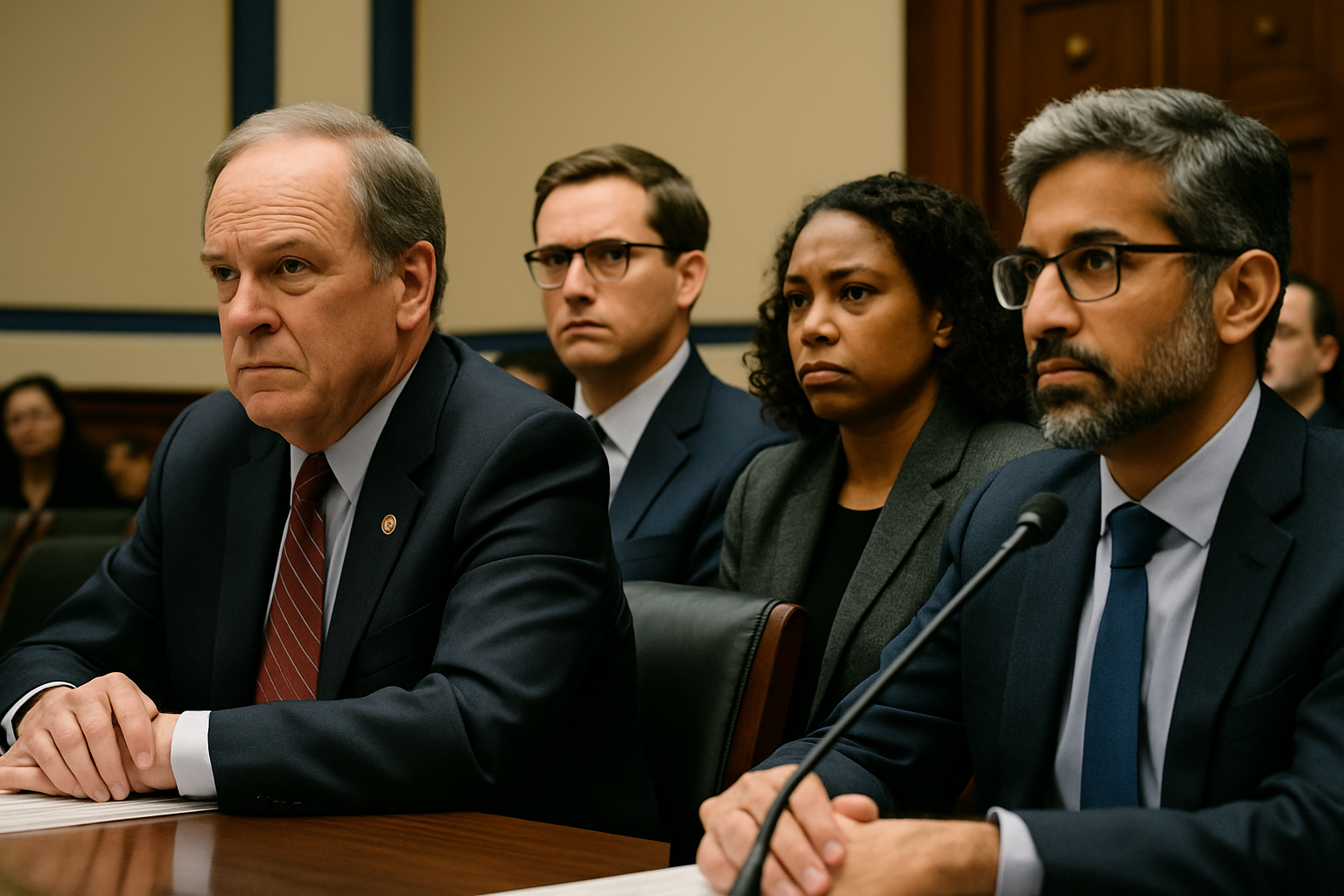Quick Take
- House hearing reveals bipartisan support for AI healthcare integration across medical operations
- AI could slash administrative costs 20-30% within five years, generating $150B annual U.S. savings
- Medicare Advantage AI systems face scrutiny over automated claim denials limiting patient access
- Lawmakers demand stronger oversight before widespread deployment in critical care decisions
- Global healthcare systems racing to implement AI while balancing innovation with patient safety
Congressional leaders examined artificial intelligence’s game-changing potential in healthcare during a crucial House Energy & Commerce Committee hearing on September 3. The session, titled “Examining Opportunities to Advance American Health Care through the Use of Artificial Intelligence Technologies,” brought together legislators, experts, and industry leaders to evaluate AI integration across healthcare sectors.
The hearing showed strong bipartisan recognition of AI’s transformative power. Rep. Morgan Griffith (R-Kentucky) emphasized that “applications of AI and machine learning have increased across the health care sector in recent years and will only play a more pronounced role in the daily lives of all Americans moving forward.”
AI Applications Gain Real-World Traction
Witnesses demonstrated practical AI implementations reshaping healthcare operations. TJ Parker of General Medicine showed how his company uses AI to coordinate patients’ medical records, provider recommendations, and booking systems “just like checking out an online shopping cart,” making primary care more accessible and equitable.
Andrew Toy detailed using AI in Medicare Advantage to help seniors receive rapid, accurate diagnoses by aggregating extensive records through the Clover Assistant tool. Pharmaceutical companies use AI to speed up scientific research and clinical trials, getting life-saving treatments to market faster.
The FDA leverages AI to shorten drug review times, and the National Institutes of Health has developed AI algorithms to match volunteer patients with clinical trials, significantly reducing administrative overhead.
Market Impact Spans Multiple Sectors
AI’s impact creates efficiency gains across market sectors. Rep. Nick Langworthy (R-New York) highlighted AI’s potential to bridge care gaps in rural areas, expanding diagnostic capabilities and providing specialty access without extensive travel.
The Medicare Innovation Center uses AI to target waste, fraud, and abuse. Medical device manufacturers deploy machine learning to improve disease understanding and advance clinical care innovations, demonstrating AI’s capacity to streamline operations while maintaining clinical standards.
Congressional Urgency Meets Healthcare Crisis
Rep. Diana DeGette (D-Colorado) expressed concern that AI technology reviews should happen before healthcare reaches crisis mode, emphasizing addressing systemic issues while advancing solutions. The current healthcare crisis amplifies demands for AI to reduce administrative burdens, improve diagnostics, and expand access in underserved areas.
Healthcare technology firms develop diagnostic tools, automation systems, and patient engagement platforms to reduce physicians’ documentation time, allowing more direct patient care and improving quality.
Oversight Gaps Raise Safety Concerns
Lawmakers highlighted inadequate regulatory frameworks. Rep. Frank Pallone (D-New Jersey) warned that without proper oversight, AI could cause devastating outcomes, including delayed care and health data breaches.
Particular scrutiny focused on AI-driven prior authorization systems within Medicare Advantage, with concerns about automated claims denials limiting patient access. Rep. Greg Landsman (D-Ohio) urged halting CMS’s AI prior authorization pilot until stronger protections are in place.
Mental health AI raised concerns, with Rep. Raul Ruiz (D-California) citing AI chatbots causing harm by encouraging dangerous behaviors and some claiming to be licensed psychologists without regulation.
Global Competition Intensifies Innovation Race
Healthcare systems worldwide explore AI integration amid competitive and collaborative dynamics. The UK’s NHS implements AI diagnostics; the EU advances AI governance via the AI Act; India leverages AI for rural care; Canada develops AI ethics guidelines.
These developments underscore shared challenges balancing innovation with patient safety, hinting at international regulatory collaboration potential.
Strategic Investment Implications
Pharmaceutical companies stand to gain by accelerating drug discovery, optimizing clinical trials, and easing regulatory approval through AI analysis of vast datasets, potentially cutting development timelines and costs.
Healthcare organizations must assess readiness for AI integration, develop compliance frameworks, and invest in staff training. Leadership faces balancing innovation with patient safety amid evolving regulations.
The congressional hearing’s bipartisan recognition of AI’s promise alongside oversight concerns suggests that measured integration with mandatory human oversight—likely legislated by 2026—will shape successful healthcare organizations in the next decade.






